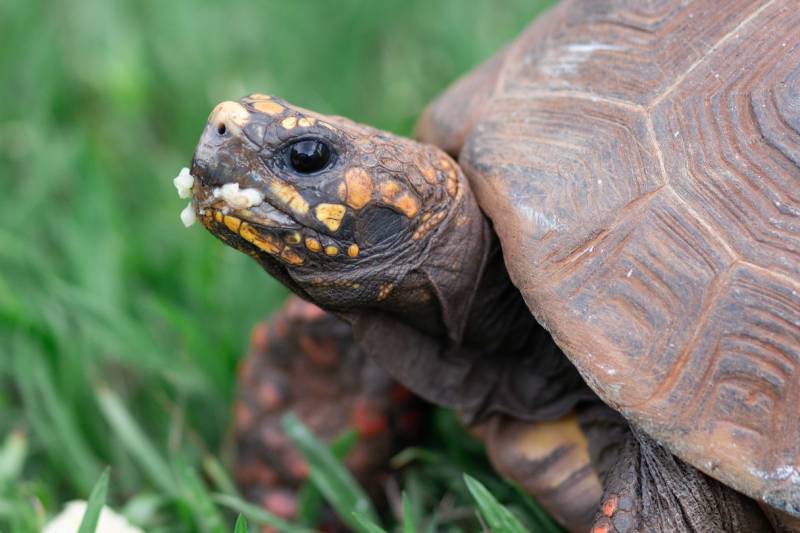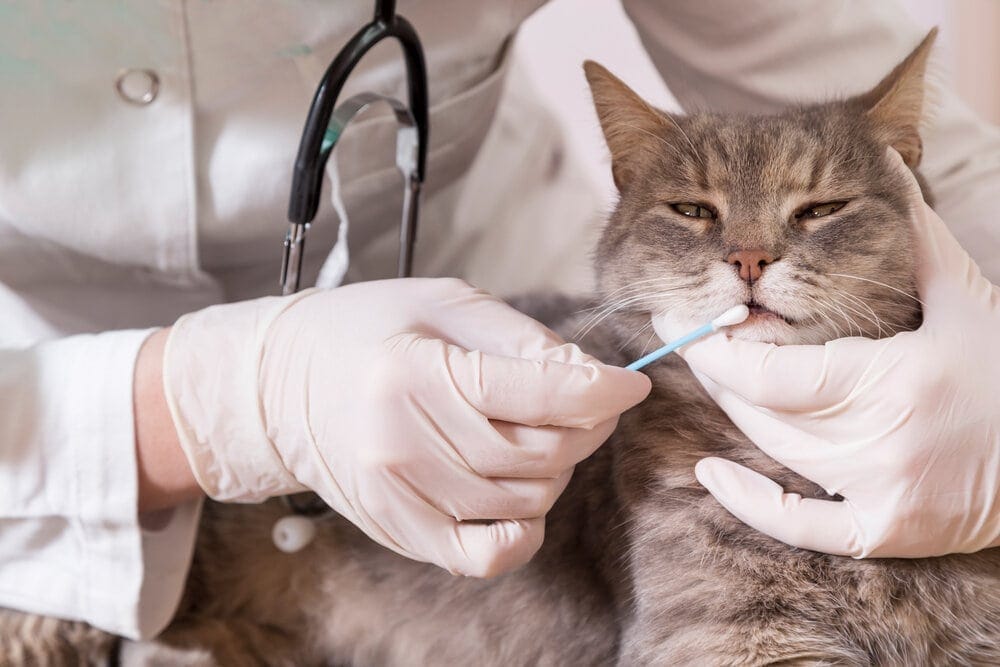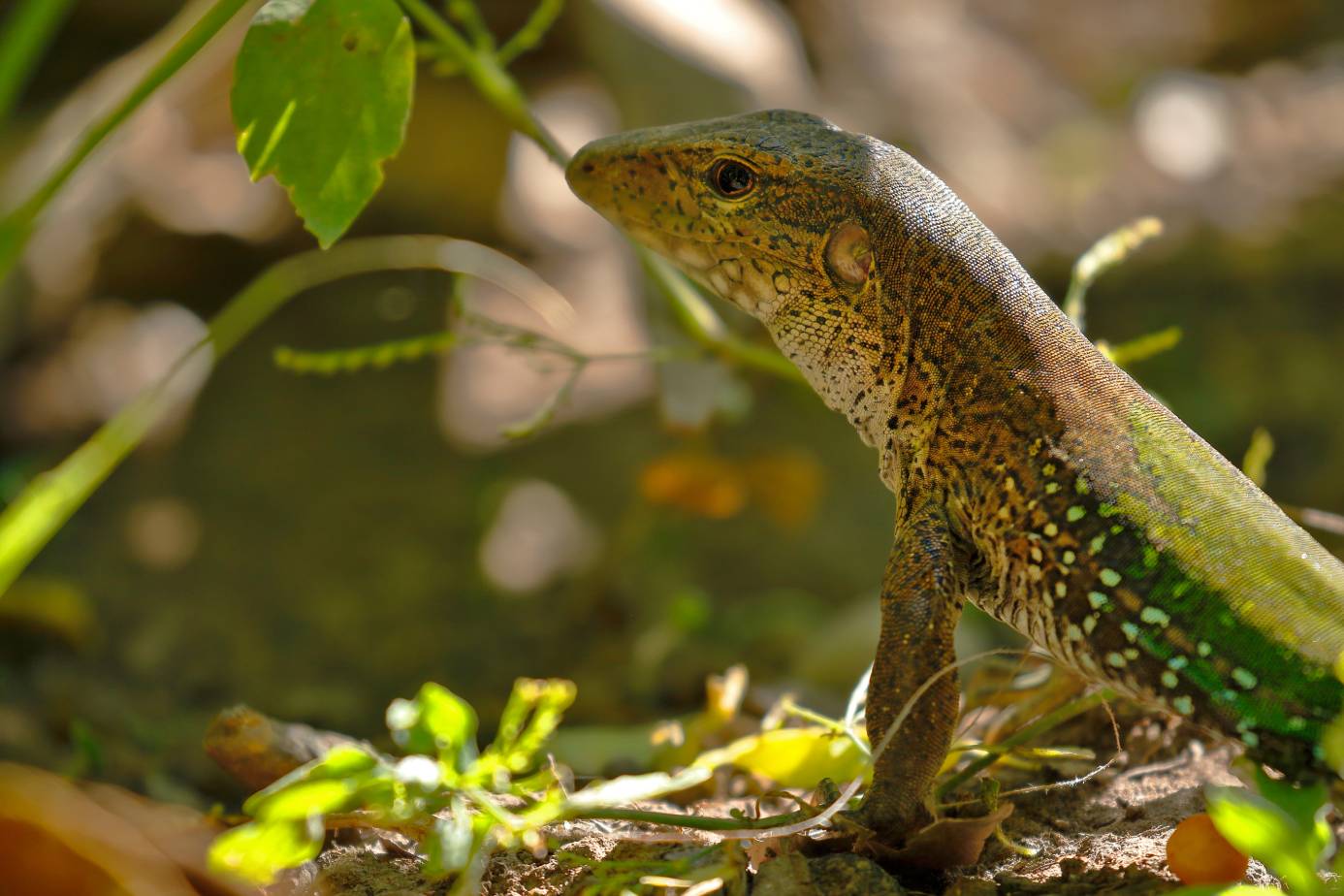Click to Skip Ahead
Some people love reptiles and either have or would like to have one as a pet, while others find the idea scary. Most reptiles seem aloof and even skittish, which makes people think that they can’t be affectionate toward their owners.
Of course, a lizard or a snake won’t appear visibly “excited” to see you like a dog would, but it is thought that reptiles experience emotions and can develop affection toward the people in their lives.1 Does that mean reptiles can be affectionate pets?
Although they most likely won’t be as affectionate as cats and dogs, many reptiles make great companions that can bond with you and show a form of devotion—if you know how to handle them properly.
Keep reading to learn more about reptiles, their emotions and bonds with humans, and whether they make affectionate pets.

Do Reptiles Have Emotions?

Reptiles are certainly capable of experiencing basic emotions. For example, fear and anger dominate in snakes due to the conditions that they experience in the wild. Most times, you can notice when this snake is exhibiting one of these emotions, as a scared, angry snake is likely to hiss, shake its tail, try to fight, or escape.
While there’s no scientific evidence of how reptiles express and feel affection or love, they can certainly experience pleasure.2 This behavior is easily noticeable when a reptile in captivity becomes familiar with its owner.
The reptile may approach you, looking for a gentle stroke, and allow you to hold it. Some reptiles may even try to climb onto you, crawl up your arm, or lean into you. Each reptile has different reactions, so this will vary from animal to animal.
Can a Reptile Bond With You?
A reptile can bond with a human, but the process will take time and patience. Unlike cats and dogs, reptiles need more time to give their owners their trust. Still, your reptile can eventually become pretty attached to you over time.
If you care for your reptile and keep it safe and well-fed, it will be able to recognize you and will typically enjoy your company. While the bond between reptiles and humans is somewhat limited, it still exists, which is why they can be affectionate pets—as much as their nature allows.
How to Bond With Your Reptile
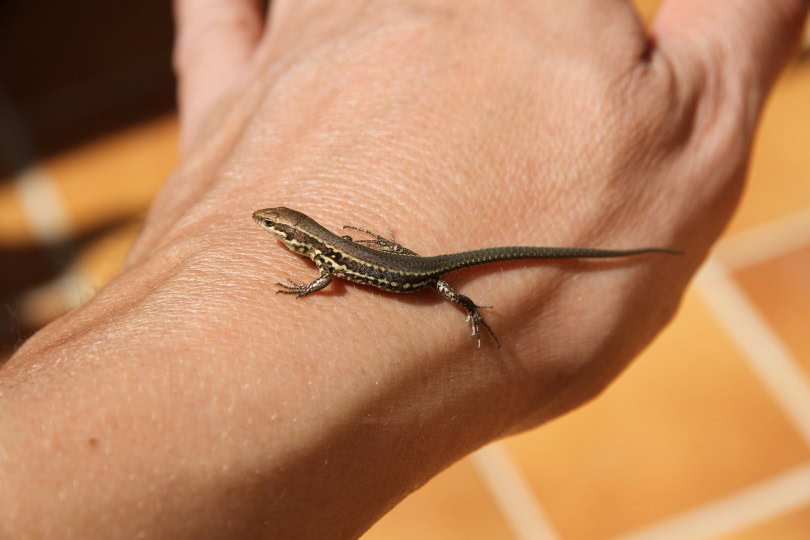
Bonding with your reptile takes time, determination, and patience, but it’s not an impossible task. However, it can be difficult to bond with this animal if you don’t have experience handling it.
Here are some tips that will help you bond with your reptile and encourage a positive relationship:
- If possible, adopt the reptile at a young age: Adopting it at a young age will allow your pet to get comfortable with you from the very beginning of its life. However, some reptiles require special care during their first years, which is something to keep in mind.
- Pay attention to the reptile’s body language: When you’re with your pet reptile, pay close attention to how it behaves around you and watch its body language. If your pet shows signs of fear or aggression, it’s best to allow it to calm down before forcing other interactions between you.
- Offer food and treats: A great way to win your reptile’s trust and strengthen your relationship is to offer it food and treats. However, remember that most reptiles don’t eat every day, so plan treats according to your pet’s eating schedule.
- Allow your reptile to adjust at its own pace: Never rush your reptile into any interactions with you, as that could backfire and make your pet nervous and aggressive. Allowing it to adapt and adjust at its own pace will make your relationship much better.
- Bathe your reptile: Many reptiles like bath time, so you can use it as a bonding activity between you and your pet.
- Handle your reptile carefully: While each reptile has a different personality, most of them love it when you hold them—provided that you’ve built up some trust—and handling your pet is necessary for developing your bond.
- Create an exciting yet safe environment for your reptile: Your pet reptile will feel more comfortable in an interesting, safe environment where it feels close to its habitat in the wilderness.
- Once comfortable, allow it to explore its environment: Taking your pet outside under supervision will improve your trust and allow your reptile to feel comfortable in your home.
How Do Reptiles Show Affection?
While reptiles don’t show their emotions the same way that dogs and cats do, you can still notice affection from your pet reptile. Here are some of the most common signs of an affectionate reptile:
- It will show excitement when you’re around.
- It won’t be scared or startled when you get close.
- The reptile will allow you to hold it.
- It seems to enjoy spending time with you.
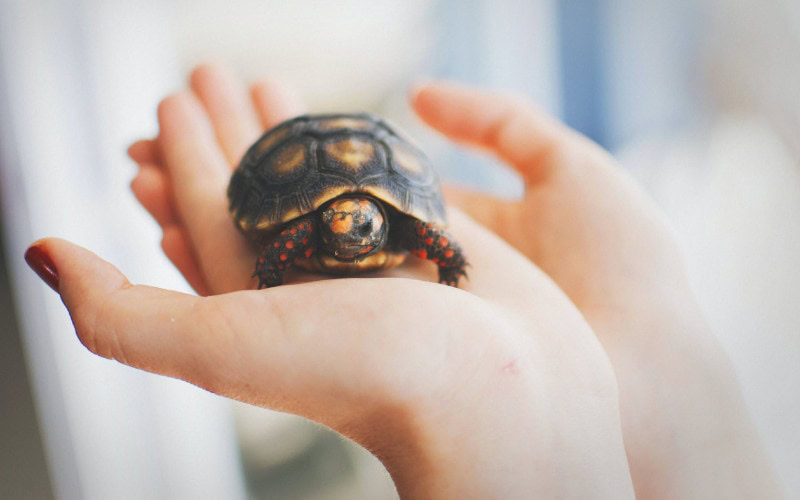

The 4 Most Affectionate Reptiles
Some reptiles are more affectionate than others, which means they’re better options for people looking for an “affectionate” pet reptile. If you’re looking for a reptile that is more open with its emotions, consider one of the following.
1. Leopard Gecko
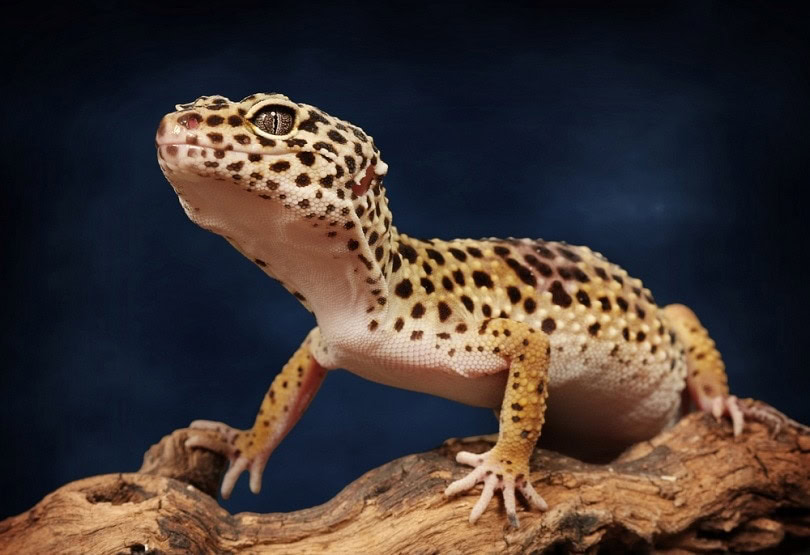
These reptiles are known for having a calm nature, which is why many people love to keep them as pets. The leopard gecko’s small size enables you to easily manage it, and once comfortable enough, it will likely climb all over you.
These lizards don’t need much space due to their small size, so they’re excellent pets for first-time reptile parents.
2. Bearded Dragon
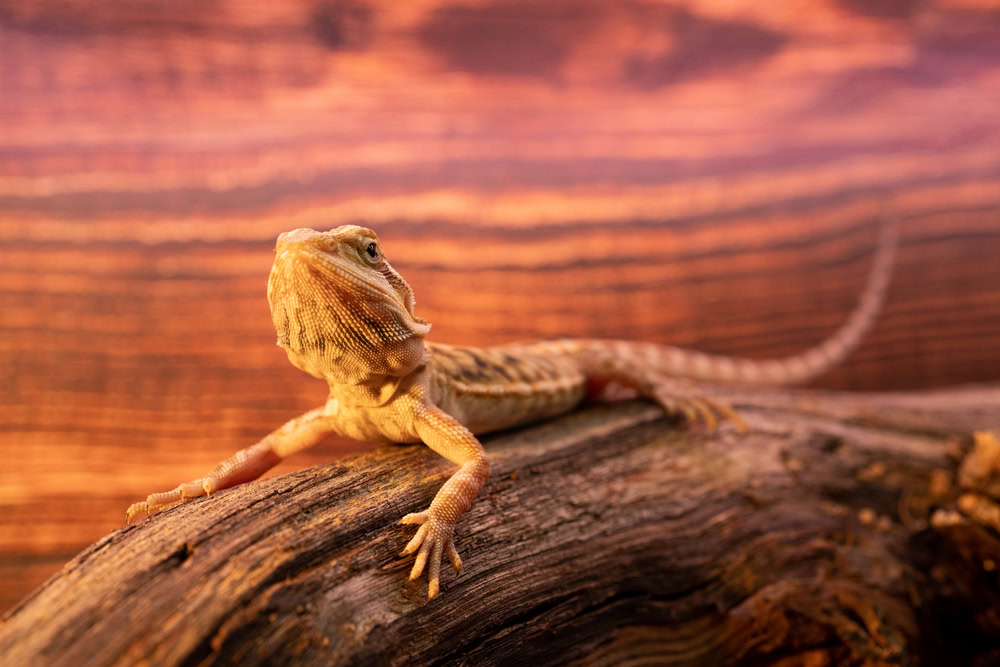
Beardies are typically quite friendly and enjoy spending their time around humans and being handled and held. As these quirky reptiles get to know you, they’ll likely climb onto you and try to reach your shoulders or head.
Bearded dragons have long lifespans of over 15 years. They are easy to maintain and don’t require any special care, making them excellent pets. These reptiles feed on vegetables and are most active during the day.
3. Chinese Water Dragon
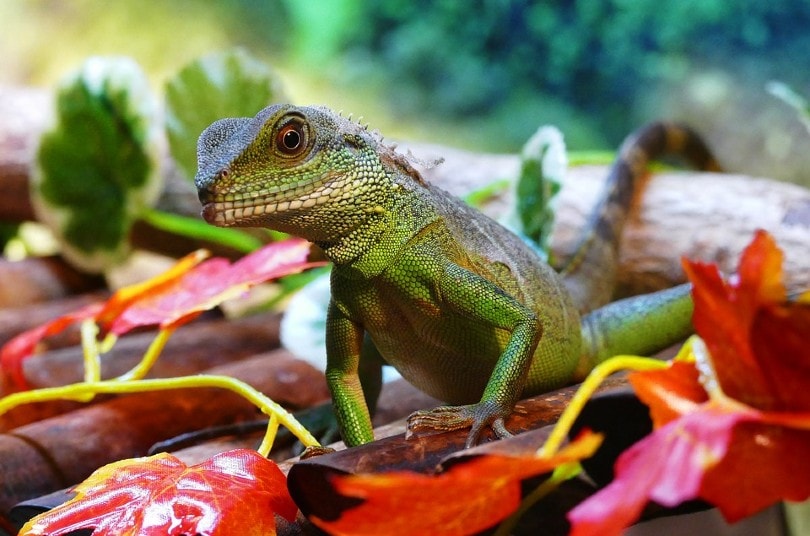
These reptiles are typically easygoing and laidback, which makes them great pets. They are commonly friendly around humans, and due to their long life expectancy, which can reach 15 years, they’ll be faithful companions for years.
One thing to keep in mind is that the Chinese water dragon might not be the best pet option for people who haven’t dealt with these animals before. Their care needs are more complex than those of some other reptiles, and you need a bit of experience to handle them.
4. Corn Snake
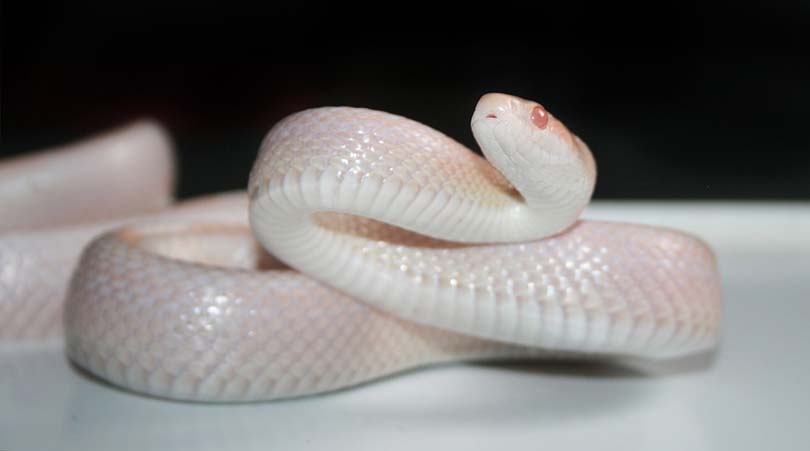
Corn snakes are excellent for first-time reptile parents because they’re friendly and easy to take care of and don’t require special conditions to develop. Due to their nature, these snakes will often be nervous when you try to hold them at first. However, they will relax in time and allow handing once they feel comfortable.
5. Argentine Black and White Tegu
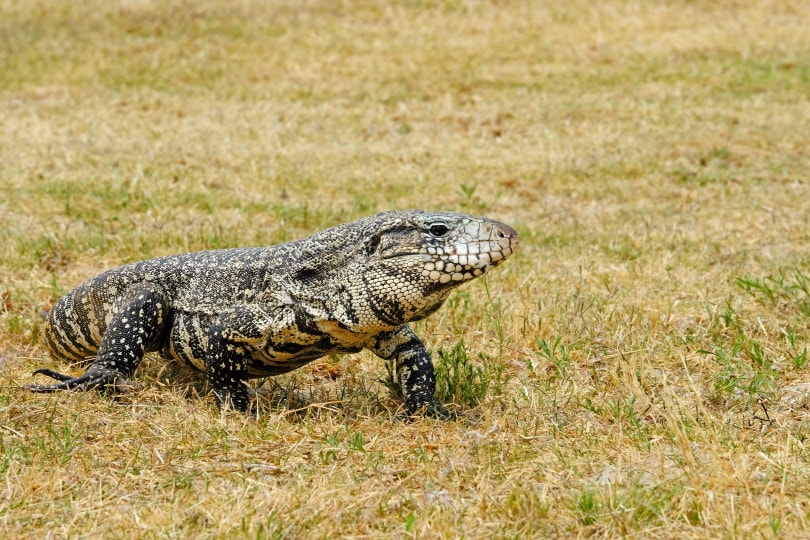
This large lizard is an excellent option for people who want a pet reptile. They are social and friendly and love to be around people. They are also intelligent, and you can even teach your pet simple tricks. However, they can frequently act hostile if they don’t socialize enough, which is something to keep in mind.

Final Thoughts
Reptiles can be somewhat affectionate, though there’s no scientific evidence proving their affection toward humans. Of course, you can’t expect a lizard or a turtle to be as hyper-excited to see you as a dog would. However, these animals still show their devotion toward their owners in their own manner, which is why many reptiles make excellent pets.
- See also: Best Pet Reptiles for Beginners
Featured Image Credit: Marina Scalon, Shutterstock
